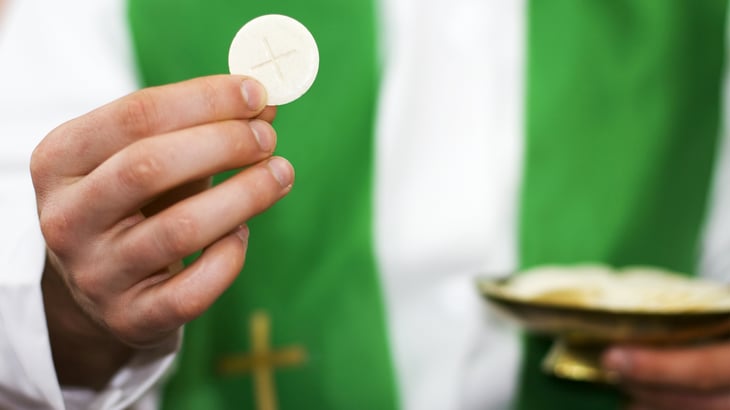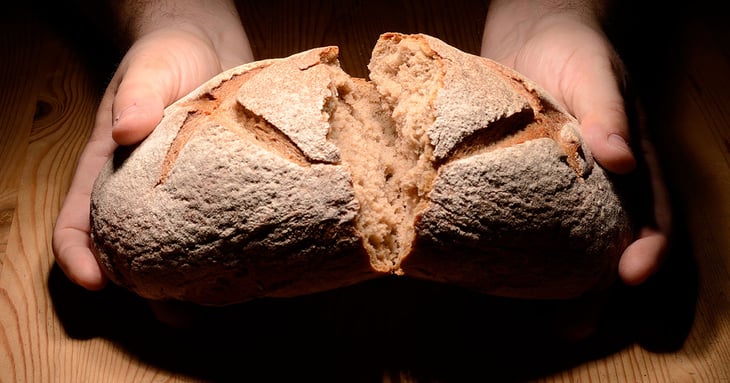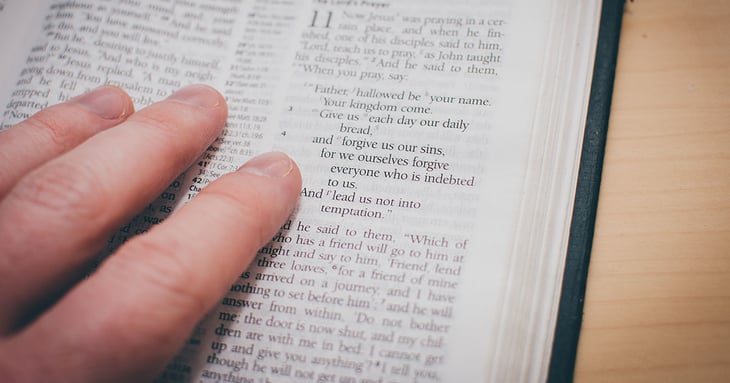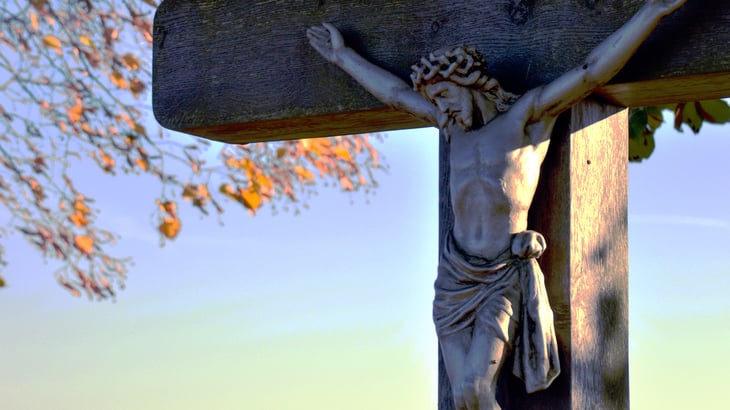How Do You Rest on the Sabbath Day?
As Lent is underway, many Christians throughout the world are participating in various spiritual disciplines. Some are fasting from a particular food, drink, or activity. Some are spending more time in prayer or the study of God’s Word.
These common Lenten disciplines draw on the many themes of Lent, encouraging us ever toward reliance on God rather than reliance on anything else. Another rhythm to Christian life that encourages such reliance and dependence is the Sabbath, the holy day of rest.
Luther’s Catechism Series: List of Household Responsibilities
This blog post is an excerpt from Commentary on Luther’s Catechisms: Confession and Christian Life by Albrecht Peters.
Luther's Catechism Series: The Lord's Supper
Every Sunday, congregants listen to their pastor speak the Words of Institution at the celebration of the Lord's Supper. What is the connection between communion and the Word of God? Read below to see Albrecht Peters' interpretations on Luther's Catechism concerning the Verba testamenti and the Lord’s Supper.
Luther’s Catechism Series: The Sacrament of Baptism
Baptism is a wonderful gift from our good and gracious God. It is the washing of regeneration and renewal in the Holy Spirit by which we are made the children of God, given the gift of faith, forgiven our sins, and claimed for all eternity. Read Luther’s insights on Baptism from Commentary on Luther’s Catechisms: Baptism and the Lord’s Supper below.
What Does the Bible Say About Blame?
The blame game is a consequence of living in a sinful, broken world. Through Confession and Absolution, we walk in God’s light as His forgiven children.
Luther’s Catechism Series: The Fourth Petition of the Lord’s Prayer
Every Sunday, as a community of believers, congregations say the Lord’s Prayer out loud. Luther goes into detail about what each petition of this prayer means, giving believers an in-depth understanding of exactly what it is they’re praying for.
The Fourth Petition, “Give us this day our daily bread,” thanks God for everything that He gives His creation, including food, drink, house, money, and so on. Read an excerpt from Albrecht Peters’s Commentary on Luther’s Catechisms: Lord’s Prayer to see how God gives humanity goodness through Christ daily.
Luther’s Catechism Series: The Second Petition of the Lord’s Prayer
Luther distinguishes himself from all interpretations of the Second Petition before him, in that in the catechism he bases the kingdom of God in the Gospel of Christ, which in the First Petition he had foreshadowed under the topic of pure doctrine. The ‘Kingdom of Grace’ of the heavenly Father is here on earth only there to be found where the Gospel of our salvation through Christ’s sacrificial death is “genuinely preached throughout the world.” This is and remains Luther’s fundamental insight: How the Church is ‘creatur verbi,’ thus also God’s Kingship is governance through the Word from the cross.
Luther’s Catechism Series: Second Article of the Apostles’ Creed
The words “passus sub Pontio Pilato, crucifixus, mortuus et sepultus” are translated by the reformer: “suffered under Pontius Pilate, crucified, dead, and buried”; admittedly, the introductory text to the Large Catechism reads: “(who) had suffered under Pontius Pilate, is crucified, dead, and buried.”
Luther’s Catechism Series: First Article of the Apostle’s Creed
Luther’s interpretation of the First Article is shaped through and through by his astonishment about the character of life as a gift. In this way, the reformer confronts that aspect which Martin Heidegger terms the “foundational question for metaphysics”: “Why is there that which exists rather than the more probable nothingness?” But Luther does not consider this as an abstract philosophical question; instead, from the vantage point of the wonderment of a child: “Why is there something and not nothing?” He considers this from the point of view of one who ventures to trust, on the basis of the biblical witness that tells of a God who dispenses life.
Luther's Catechism Series: The Ten Commandments Part 2
Leading up to Christ’s crucifixion, the Gospel of Matthew recounts that “the chief priests and the whole council were seeking false testimony against Jesus that they might put Him to death” (26:59). Bearing false testimony is breaking the Eighth Commandment, but through Christ’s resurrection, we are forgiven. But what encompasses the entirety of the Eighth Commandment? Read Albrecht Peters’ commentary on Luther’s interpretations of this commandment to see what this commandment fully encompasses.
Wording and Interpretation of the Commandment
The translations of the Eighth Commandment vary slightly: “You shall not speak false testimony against your neighbor.” Following tradition, Luther wavers between Zeugnis and Gezeugnis for testimonium. Loqueris he typically translates verbatim as “speak” —here and there also with “give.” . . . Luther consistently adds “against your neighbor” and thereby underlines the specific direction of the commandment toward the neighbor, which characterizes his interpretation.




















